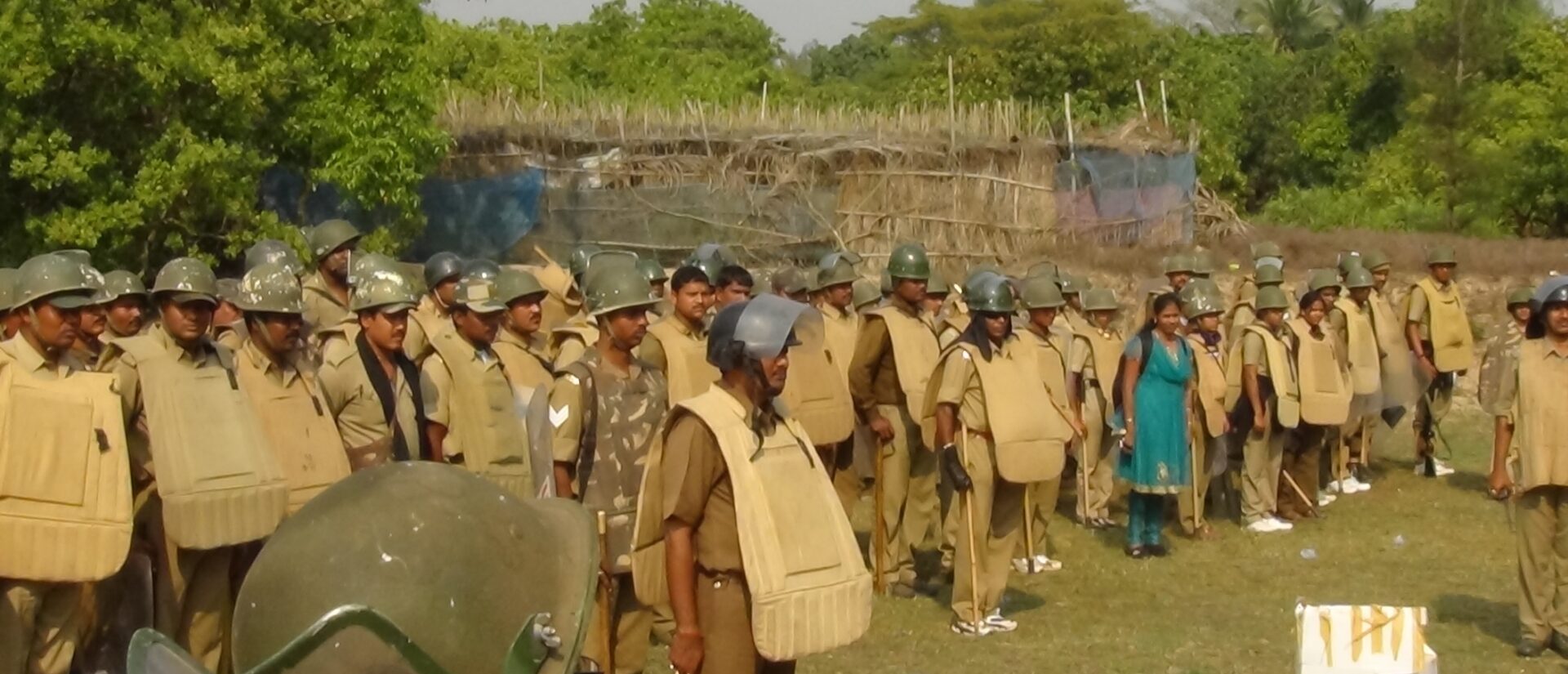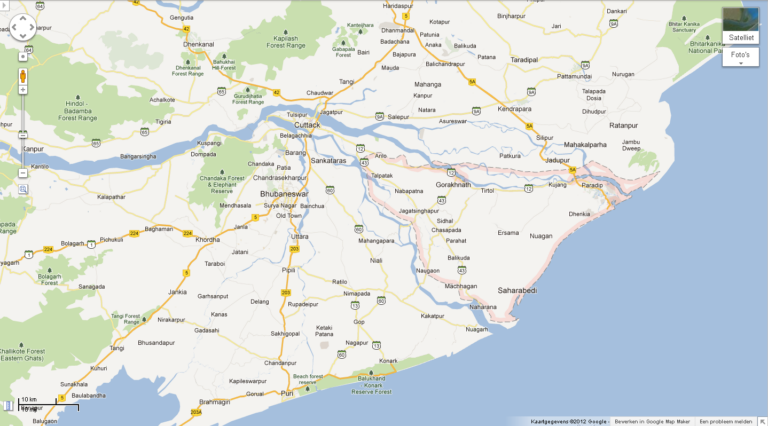
FGG Alliance and ABP/APG make joint statement regarding OECD complaint
As part of an international coalition of NGOs, the Fair Green & Global Alliance (FGG) filed an OECD complaint in 2012 against pension fund ABP and its fund asset manager All Pension Group (APG), who have shares in South Korean company Pohang Iron and Steel Company (POSCO). As a result of the complaint, the Netherlands National Contact Point (NCP) facilitated a dialogue between ABP/APG and the FGG, which led to a joint agreement and a statement from the Netherlands NCP. With this agreement the parties hope to make a positive contribution to a solution for the continuing escalation of conflict in India. A conflict where violence is being used against the local population near POSCO’s disputed mining project in Odisha and where human rights are not being respected.
The international coalition has been formed by the Dutch FGG(opens in new window) , the Indian civilians’ movement Lok Shakti Abhiyan, the Norwegian NGO coalition ForUM and the South Korean Trans National Corporation Watch. In 2012 this coalition filed reports of the violation of the OECD Guidelines for Multinational Enterprises by POSCO with the Netherlands, Norwegian and South Korean Contact Points for OECD Guidelines. The complaint is directed at POSCO but also concerns Norwegian pension fund GPFG and Dutch pension fund ABP and its fund asset manager, All Pension Group (APG). ABP has shares in POSCO worth approximately € 17m(opens in new window) . According to the international coalition, the aforementioned stakeholders have done too little to improve the situation and they are being called upon to exert more pressure on POSCO.
What is POSCO doing wrong?
POSCO is planning to develop a large steel plant, mining operations and a port in Indian state Odisha, including roads and railroads. This would lead to irreparable damage to nature and the environment in the area, and tens of thousands of people would become displaced and lose their source of income. Meanwhile violence by the local police and hired gangs against the local population that is protesting the POSCO plans has already led to multiple deaths. Despite the powerful resistance, the lack of complete ‘impact assessments’ as well as the lack of all the required licenses, POSCO is continuing with its plans undeterred. There is no meaningful dialogue with the local communities.
Netherlands NCP investigates role of ABP/APG
The Netherlands National Contact point (NCP) only handled the complaint against the Dutch institutions ABP and APG; POSCO and the Norwegian Pension fund fell outside of its scope. In its statement, the Netherlands NCP confirms(opens in new window)
that the OECD Guidelines also apply to financial institutions that have minority shares in multinational enterprises. With a share of less than 1% in POSCO, ABP/APG, according to the Netherlands NCP, most definitely has a responsibility under OECD Guidelines to try to prevent or mitigate any violations carried out by POSCO. This statement will affect future similar situations.
The Netherlands NCP will take steps to set up an international mission, in cooperation with the Korean and Norwegian NCPs, to chart the local situation and see how an effective local dialogue can be initiated.
Joint statement FGG and ABP/APG
After various meetings where the representatives of the FGG Alliance, ABP and APG entered into dialogue with each other, they wrote a joint declaration.(opens in new window) In this document they agree on the following points:
- The parties share a great concern about the increasing violence against the local communities who are protesting the plans of POSCO. It needs to be investigated how many local population groups have suffered damages caused by POSCO’s plans and the violence.
- The parties are asking the involved NCPs to facilitate an independent evaluation and research mission in Odisha. This mission needs to determine the local situation and study the possible negative consequences of POSCO’s plans. Another point of study should be the possibility to bring together local parties.
- The rights of the indigeneous peoples in Odisha must be taken into account and respected.
- All negative consequences of the investments made by POSCO for the planned construction of the steel factory, as well as of the mines, the roads and port in the region, need to be studied and documented.
Case not closed
This is not the end of the story, this concerns a preliminary statement from the Netherlands NCP. It has committed itself to setting up the evaluation and research mission, with the cooperation of the Norwegian and Korean NCPs being a key ingredient. The FGG will continue to follow developments closely.
Do you need more information?
-

Joseph Wilde-Ramsing
Advocacy Director
Partners
-
FGG – Fair, Green and Global Alliance
Related content
-
 International NGO coalition files complaint against Korean steel giant POSCO and financing pension fundsPosted in category:NewsPublished on:
International NGO coalition files complaint against Korean steel giant POSCO and financing pension fundsPosted in category:NewsPublished on: -
 Dutch State accused of failing to prevent genocidePosted in category:Case
Dutch State accused of failing to prevent genocidePosted in category:Case Lydia de LeeuwPublished on:
Lydia de LeeuwPublished on: -

